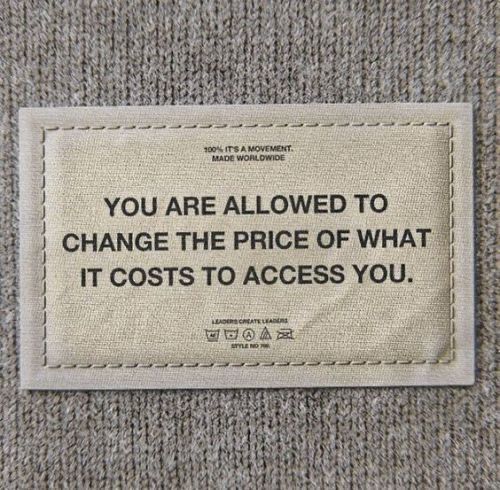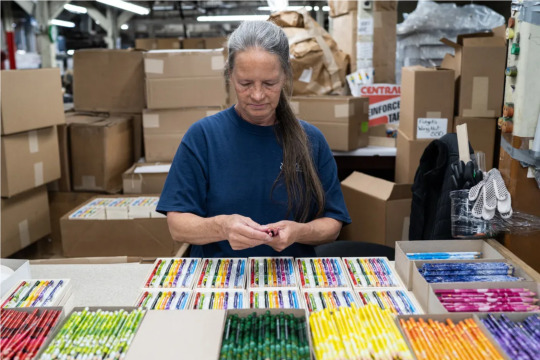#cultural sociology
Text
(common superstitions from the perspective of a USAmerican- would love to hear superstitions from other regions and cultures!)
(follow the most often when the situation arises, or believe in the strongest)
#(i doubt any of these actually *originate* in the US i just mean what we have commonly culturally adopted)#not counting blessing a sneeze cause that would for sure win i think#poll#polls#tumblr poll#tumblr polls#superstitions#psychology#sociology
13K notes
·
View notes
Text
This month’s Office Hours comes with an exciting announcement: We are welcoming three new editors to the Princeton Studies in Cultural Sociology! Clayton Childress, Angèle Christin, and Iddo Tavory join current editors Paul DiMaggio, Michèle Lamont, and Viviana A. Zelizer. We are delighted to add their expertise to the series, which aims to publish works by the most promising and prominent scholars in cultural sociology. Get to know these new editors a bit better below as they share some terrific book recommendations and thoughtful career advice.
We hope to see you all at ASA in Philadelphia—please do stop by the Princeton University Press booth (#409)!
—Meagan Levinson, Executive Editor
What book are you reading now?
AC: Like many people, I first got into academia because I loved reading books. To keep this love going, I created a Feminist STS Book Club at Stanford with graduate students and postdocs, where we each nominate books—scholarly books as well as fiction—and discuss them together. The two books we read most recently were a blast.
The first one was Timothy Mitchell’s The Rule of Experts: Egypt, Techno-Politics, Modernity (University of California Press), which starts with this unforgettable sentence describing the arrival of malarial mosquitos during World War II: “In the summer of 1942 two forces invaded Egypt, and each provoked a decisive battle. Only one of the two was human, so only that one is remembered, although the casualties in the other battle were greater.” I mean… does academic writing get any better than this?
The second was Michael Kimmel’s Manhood in America: A Cultural History (Oxford University Press), a classic in gender studies. Kimmel introduces the concept of “hegemonic masculinity,” and has some pretty amazing pictures that kept us going for a long time (I won’t say more but encourage everybody to take a look). This one was particularly relevant for my research, since part of my current book project on influencers focuses on the case of “dad influencers” and how they articulate masculinity on Instagram, YouTube, and TikTok.
CC: Right now I’m reading Hajar Yazdiha’s The Struggle for the People’s King (Princeton University Press), which I got a couple days before I wrote this, and which I’m loving so far. Other books I’ve recently read and admired are Derron Wallace’s The Culture Trap (Oxford University Press), Larissa Buchholz’s The Global Rules of Art (Princeton University Press), and Frank Dobbin and Alexanda Kalev’s Getting to Diversity (Harvard University Press). Next on my list is Kusha Sefat’s Revolution of Things (Princeton University Press). The two forthcoming books I’m most excited about are not sociology; Jesse David Fox’s Comedy Book (FSG) and Kliph Nesteroff’s Outrageous (Abrams).
IT: One of the things I realized when I got a job is that, suddenly, I had to trick myself into reading books. Academic life is full of so many tasks with actual deadlines, that reading a book becomes something you have to make a real effort to get to. I trick myself into reading books by putting myself on award committees, sitting on editorial boards (!) and running a theory reading-group with students and colleagues at my department.
Two books that I have been spending time with over the past weeks are Karen Cerulo and Janet Ruane’s Dreams of a Lifetime (Princeton University Press), and Annie Ernaux’s Shame (Seven Stories Press). The first is a wonderful sociological book that shows the patterns of fantasy that America Dreams follow; The second is a fiction book in which seemingly very little happens. The author spends the entire book trying to understand the background conditions that led to her experiencing a particular childhood trauma described on the first couple of pages. Both sociological books, though in different ways…
What book has had the most impact on your career?
AC: That’s a hard one. I was first trained in France, where I came of age with the holy trifecta of Pierre Bourdieu-Luc Boltanski-Bruno Latour, so it’s been hard to break away from this training, and in all honesty I should probably cite a book from each of them.
That said, if I were to choose a book that recently made me reconsider everything I thought and how I could write, I would pick Donna Haraway’s “A Cyborg Manifesto,” first published in 1985 as an essay in the Socialist Review, later published as part of Simians, Cyborgs, and Women: The Reinvention of Nature (Routledge). It changed everything I thought I knew about technology, feminism, and embodiment. More personally, it transformed how I thought of myself in relation to technological and medical artefacts. It’s such an energetic, powerful, free kind of text—it’s creative in a way that encourages everyone to play with disciplinary norms.
CC: Josh Gamson’s Freaks Talk Back (Chicago University Press) is why I wanted to become a sociologist. It’s empirically rich, important but not self-important, and contrarian in a way that I think much of good sociology should be. It has a home base in culture while also integrating across subfields (movements, sexualities) in such an exciting way. And it’s unabashedly a fun read. I love it.
IT: Perhaps the book that made the most impact on me was G. H. Mead’s Mind Self and Society (University of Chicago). I was a Master’s student in Tel Aviv University, and some friends and I started a theory “book club.” We would meet at my place to read 5-10 pages of the book, slowly working through the ideas over months, trying to think what it means for a self to emerge socially, and what it means to focus on action. A lot of my interactionist and pragmatist leanings were cemented there, in the back and forth of these conversation
What is the best career advice you ever received?
AC: My postdoc mentor danah boyd once said in passing, “you need to find out what recharges your battery.” I don’t think she was giving career advice, but this sentence has stayed with me ever since. Academic careers are long and arduous. The job is wonderful but exhausting and relentless, so after a while, for me the question became: how do you keep on going? danah’s answer was another question: what brings you joy? Is it immersing yourself in books and articles and learning about a topic you know nothing about? Is it writing first drafts and figuring out what you’re trying to say about something? Is it doing in-depth fieldwork? Is it fostering intellectual community and see how other people think about hard questions? Is it curling up on a sofa with hot tea and reading romance novels? (of course, it can be all the above). When I feel depleted and exhausted, I try to go back to what brings me joy, I seek to protect it and put clear boundaries around it. It doesn’t always work, but I like to think that I’m getting better at it!
CC: When I was a graduate student my advisor, John Mohr, warned me that he thought a lot of things could (and likely would) go wrong with my dissertation, but not to worry, because none of them would prevent me from ultimately having a dissertation. It was a warning and a reassurance at the same time, which is the package that those types of warnings should always come in. As John predicted, many things did go wrong in my dissertation. The gift of that conversation was John was giving me permission to be comfortable with my reach exceeding my grasp, and to take risks, and to try stuff out.
IT: Not quite advice, but a form of training… I was a journalist before I decided to get into academia. I used to work in the foreign desk editor at Ha’aretz, an Israeli newspaper. Every day I would come at 4pm and get my pages and some guidance from my chief editor, and every night, at around 12am, give or take, the pages I received would be full, double-checked and copy-edited. There was something reassuring about knowing that, whatever happens, the pages will be filled in the 8 hours between my arrival and going home. Approaching academic work in this way has been incredibly helpful. Writing is not a matter of inspiration. Inspiration may hit in the act, but sitting and writing—filling the page—is a form of labor. I think it saved me from a lot of angst both in graduate school, and later on in my career.
Clayton Childress is assistant professor of sociology at the University of Toronto.
Angèle Christin is assistant professor of communication and, by courtesy, of sociology at Stanford University. Website www.angelechristin.com Twitter @AngeleChristin
Iddo Tavory is associate professor of sociology at New York University.
1 note
·
View note
Text


#art#quotes#motivation#words#aesthetic#i love you#poetry#inspiration#writing#poets on tumblr#writers#books and libraries#poetas en español#love#sociology#literature#books libraries#culture#writers on tumblr#beauty
6K notes
·
View notes
Text

La vida no te garantiza que siempre recibirás lo que des, pero todo aquello que des seguro reflejará por sí solo de lo que eres...
Priscila Alcívar
#motivation#inspiration#poetas en español#frases#escritos#tumblarians#romance quotes#romance#comedy#culture#spilled thoughts#literature#prose#writers#quoteoftheday#sociology#i love you#currently reading#books libraries#art#mua
30K notes
·
View notes
Text

SHE MAY BE . . A BAG OF TROUBLE / SYPHILIS - GONORRHEA. 1940. By Christian. Poster.
#illustration#poster#public health#sexism#art#typography#psychology#1940s#vintage#retro#health#culture#sociology#pop art
241 notes
·
View notes
Text
The freedom to abandon one’s community, knowing one will be welcomed in faraway lands; the freedom to shift back and forth between social structures, depending on the time of year; the freedom to disobey authorities without consequence – all appear to have been simply assumed among our distant ancestors, even if most people find them barely conceivable today. Humans may not have begun their history in a state of primordial innocence, but they do appear to have begun it with a self-conscious aversion to being told what to do. If this is so, we can at least refine our initial question: the real puzzle is not when chiefs, or even kings and queens, first appeared, but rather when it was no longer possible simply to laugh them out of court.
The Dawn of Everything: A New History of Humanity by David Graeber and David Wengrow
#the dawn of everything#David Graeber#David Wengrow#archeology#prehistory#anthropology#history#upper paleolithic#paleolithic#human history#sociology#book recommendations#book quotes#nonfiction#readings#reading list#reading recommendations#book rec#cultural anthropology#history of science#inequality#anarchism#writings
1K notes
·
View notes
Text
I think the important thing to take away about these videos about Somerton and other YouTubers who plagiarize and make up facts whole cloth is that this is how a lot of people are getting all of their information now - this is how all these weird ridiculous things start spreading across social media, how people end up convinced that the wildest of lies are true, how nuance dies a gruesome death. Whether or not you personally have ever heard of or watched these people is irrelevant. (Yes, you've never heard of these people, you're very smart and unique and superior, good for you, I guess.) The point is to know where this bullshit is coming from so you can better refute it, or better, teach other people how to do their own research and make these videos be the starting point of learning, not the sum total of it.
Related, I'm now watching the toddintheshadows video, and I think I've said "what the FUCK" more times than I have in a short amount of time ever, and I'm not even an hour in. Seriously. What the FUCK.
#there's so much culture and sociology and education theory at work here#the thoughts are a mess in my brain trying to break free#it's wild#and media literacy and theory is kind of my whole jam#so it's just churning around in there#waiting to gel into more useful thoughts
124 notes
·
View notes
Text
Basics of Tumblr-based memetics for reddit refugees
When people arrive at Tumblr, they are generally unsure about how to handle themselves. The buttons are easy enough (I mean, the UI sucks, but it's 2023, we're all used to sucky UIs by now, so....), but what are the social implications of each one? What does a reblog mean?
This is very difficult to explain to people for whom this is their first social media site, or are arriving here from (eg) Facebook. But for this round of refugees, from Reddit specifically, I actually can explain. Because!...
....As you have no doubt noticed ....
.... in a world where we all use 4 websites, and each of them consists of content screenshotted from the other 3....
...there is not an equal distribution of who's making content and who's copying it. Facebook generates almost none of the content for other websites; Twitter generates some; but nearly all of the content on the modern internet is generate on Reddit or on Tumblr.
There is a reason for this: all "web 2.0" sites have the ability to generate new memes, and new variants on those memes. But only Reddit and Tumblr have an evolutionary pressure that forces those memes through a natural-selection process. On Reddit, that pressure is applied by the voting system: if an addition to a post doesn't get enough upvotes, it's hidden from view, which means it has limited ability to affect the next generation of posts.
On Tumblr, the equivalent evolutionary pressure is applied by reblogs: each version of a post, each set of additions, is seen in proportion to how many people reblog it, and thus cause other people to see it. Lack of reblogs -> lack of visibility -> limited ability to affect the next generation of posts.
So with that in mind, let's look at some nuances that are specific to the Tumblr ecosystem.
1) Reblogs are direct visibility; upvotes are indirect
On Reddit, when you upvote something, it's a signal to the algorithm that -- in your opinion -- this thing is useful/valuable/funny or in some other way worthwhile. The algorithm takes that into account along with everyone else's votes, time since it was posted, and so on, and makes a decision about what to show by default vs what to hide by default, and how to sort things. Upvoting does affect visibility, but it's only one factor.
Whereas on Tumblr, reblogging puts the post on your followers' dashboards directly (assuming your followers have chronological order turned on, which most of them probably do because fuck corporate decisions about what I should and shouldn't see). One reblog = one post on everyone's dashboard; it's as simple as that.
Reblogging is therefore a much stronger evolutionary boost than upvoting is.
2) Likes have very little impact on visibility
Most people have "based on your likes" turned off. Even for those that keep it on, it doesn't affect what other people see, it only gives Tumblr some idea of what you might like to see. Of course behind the scenes that's somehow accomplished with some kind of correlation coefficient about which posts are most likely to be "liked" by the same person, and in that sense a "like" on this post increases the likelihood that someone else who has "liked" other posts that you have "liked" will see this post as well, but it's a very tenuous and wispy impact,.
Liking is therefore a much weaker evolutionary boost than upvoting is, and should be considered more along the lines of a high-five, or a hug, or a "I would give you gold for this if I could afford any" comment.
(Also, you cannot "like" only one section of a post. When you "like", the notification goes to everyone in the chain, from OP to the latest reblog. If you wish to give specific high-fives, the mechanism you're looking for is replies.)
3) Replies have no impact on visibility one way or the other.
Only OP gets notifications for replies, but you can tag people in the reply to notify them. This is the place for "@most-recent-commenter I would give you gold if I could" or for tagging a friend that you think would enjoy the post.
So, with the underlying mechanics of the ecosystem out of the way, let's look at
memetic engineering
There are two ways you can add your thoughts/ideas/opinions/snarky commentary to a post: in the text of the post, or in the tags.
a digression on tags
Tags -- of course -- can theoretically be used to organize content, although if we're being completely honest here, they're not ... great. for that. Tags can be handy as a textual handle to simplify your google search when you use an external search engine to search your own tumblr blog, but their use as an archival tool is mediocre at best. Likewise, no matter what the Tumblr UI says in the tag section, they're not gonna be that helpful in allowing people to find your content.
Tags can also, as sometimes they do on Twitter or Instagram, provide context to a post. This is less important here, since without a character limit there's no need to trim down your commentary and trust #wgastrike2023 to fill in the missing details, but it can be very handy when you're trying to determine whether this "Bruce and his buddies" post is talking about The Hulk or about Batman, or whether this thread is dissing Harry Potter, Harry Styles, or Harry Prince of Wales.
Tags are also very handy for allowing people to continue following you even when there's some sort of interest incompatibility. If you love spiders -- especially pictures of spiders -- and I'm arachnophobic, then I'm probably not going to be able to keep following you, no matter how excellent your Anarchist Star Wars takes are. But if you love pictures of spiders and you tag every single one of them #spiders, then I can block that tag and still keep following you. Similarly, a temporary block on #The Witcher Spoilers can allow the fandom to all discuss a new episode at whatever time they're able to watch it, without having to completely avoid online spaces in the meantime.
And finally, tags can, and are, used for commentary that you don't want to put in the main post. Where that line is -- what to put in the post and what to put in tags -- is something you'll have to decide for yourself as you get experience, but as a general rule, the post is for something that you believe contributes to the memetic fitness of this post, and the tags are for things that you believe are not necessarily of memetic value. Additions to the post are integrated into the DNA, and will be passed on with subsequent reblogs; tags are only added to your instantiation of the post, and will not be included on future reblogs (unless the person who reblogs it from you is on iOS Tumblr Mobile app and hasn't adjusted their settings, in which case it'll go into their tags... but at any rate it'll die out in a generation or two.) This feature makes it good for adding meta-commentary that will be interesting/funny/valuable to your immediate circle of friends, but won't be useful to the population as a whole -- it allows you to be as snarky, in-joke-y, and obscure as you'd like, without having to spend any of your mental RAM calculating what will and won't have an impact on your Brand as an Influencer.
Influencers
There is no easy mechanism for people to see your follower count. There are many easy mechanisms for people to make it impossible to see their follower count. No one cares about how many followers you have or how far your "influence" spreads. No one is going to offer you a Tumblr sponsorship deal.
However, for assorted underlying-code reasons, Tumblr blogs are disproportionately useful for manipulating search engines. So.... we have an ongoing problem with SEO scum making a whole bunch of bots and using reblogs etc to generate fake signals to Google.
The combination of those two things leads to a general Tumblr tradition of Block Bots On Sight. The extra followers aren't helping you, and the mere fact of their existence is hurting all of us. If you've seen people strongly urging you to change your profile picture, add a bio, and reblog a couple things, that's why -- because we don't want you to get caught in the crossfire of our ongoing guerilla warfare.
Other Notes
One of the places that Reddit is much better than Tumblr is in the viewing of an entire memetic population as a whole: you just look at a post, scroll through the page, and Reddit helpfully shows you want you want to see, and hides what you don't.
On Tumblr, each memetic variation is functionally an entirely separate entity. This is great for memetic diversity, but it means there's a LOT of duplication, and it means there's really no good way to get all the variants together. The closest you can get is to "check the notes" -- click on that number at the bottom left of a post, and look through the replies, reblogs, and tags. Those are in chronological order and in no way threaded, so it's not very useful, but it is what we've got.
Let's see ...
One thing Tumblr does much better than Reddit is the ability (because of aforementioned fragmentation) to have an arbitrary number of any fandom. No more "Well I don't like the takes in r/polyamory but it's the only place where I can talk about it so idk" ... nope! Here we can have as many Spider-Man fandoms as there are Spider-Man fans. Really like someone's headcanons? Follow them! Really dislike someone's OTP? Unfollow them! Really hate someone's take on your favorite character? Block them! This is a fabulous feature of Tumblr and I encourage you to take advantage of it.
uh...
tags can be 140 characters, but they can't contain double quotes (") or commas (,) because those are delimiter characters and Tumblr will break your tag at those points in the string
...
If you think someone has mis-judged the value of their tags, you can copy them from their post and paste them into the main comment of your reblog. This is known as the tags "passing peer review". Copy-paste is preferred to screenshotting for accessibility reasons (and also the fact that sometimes Tumblr just doesn't feel like loading pictures), and it's considered polite to credit the person whose tags you promoted.
...
Contrariwise, if you think they mis-judged the value of their comment, you can go back to the person they reblogged from, and reblog without their addition. Tumblr made this harder recently, but I have confidence that we'll defeat them eventually.
...
I know that I said reblogs are much stronger than upvotes, but when you've got infinite monkeys generating infinite reblog streams, it all gets lost in the noise. Reblog anything and everything you feel like upvoting -- if people don’t want to be subjected to a bunch of random shit that lights up the dopamine receptors in your brain, they shouldn’t be following you on Tumblr.
...
IDK what to tell you about Tumblr polls. We're just like this 🤷♂️
...
...
That's all I can think of. Deities bless and keep you for seeing a problem in our online ecosystem and actually doing something about it. Looking forward to seeing what we can do together.
(Author's Note: All statements about how Tumblr works ("works") are as of 14 June 2023. God only knows what changes staff will have rolled out by time time you read this)
#welcome reddit refugees#meme mutation#memetics#long post#sociology#anthropology#tumblr culture#the tumblr experience#seriously people tag your fandom if you're going to talk about bruce! Or Harry! Or Steve!
266 notes
·
View notes
Text
Instead of using the term 'cancel culture'... (Courtesy of Claude-instant)
A more constructive approach would be to specifically address behaviors like:
Online harassment campaigns against individuals over controversial/unpopular past statements or actions, especially when unrelated to their current work.
Coordinated efforts to damage someone's career or reputation through bullying, threats or lying, rather than open debate of ideas.
Deplatforming or no-platforming controversially from public forums and debates without due process for airing all perspectives.
Purging access to previously public/accepted cultural works or ideas without public input or transparency in decision-making.
Focusing on concrete problematic trends in discourse, rather than undefinable buzzwords, allows outlining reasonable standards and alternatives for a respectful exchange of ideas. It's probably best avoided allegations of "-isms" and kept the emphasis on fair, solution-oriented discussions wherever possible.
166 notes
·
View notes
Text

#travel#cameras#sociology#movies#libraries#culture#books#health fitness#books and libraries#motivation#photographers on tumblr#home lifestyle#landscape#cute#photography#nature#art#beauty#design#inspiration#alternative#scenery#aesthetic#paradise#exlore#cottagecore#adventure#traveling
60 notes
·
View notes
Text

58 notes
·
View notes
Text

#art#poetas en español#quotes#motivation#aesthetic#i love you#poetry#inspiration#writing#poets on tumblr#writers#books and libraries#words#love#sociology#literature#books libraries#culture#writers on tumblr#beauty
3K notes
·
View notes
Text

Cuando los vientos cambian de dirección, las tormentas se convierten en suave brisa capaces de refrescar y a la misma vez, acrecentar la flama del alma…
Priscila Alcívar
#literature#writers#tumblarians#movies#travel#museums#architecture#culture#education#design#history#health fitness#books libraries#home lifestyle#books and libraries#sociology#photography#student#quoteoftheday#art
15K notes
·
View notes
Text
"Strive not to be a success, but rather to be of value."
-Albert Einstein
#lit#words#literature#art#writers#tumblarians#movies#culture#education#design#history#health fitness#books libraries#home lifestyle#books and libraries#sociology#student#quoteoftheday#anthropology#technology#albert einsteen quote#albert einstein#big brain
703 notes
·
View notes
Text

See Inside One of America’s Last Pencil Factories. The family-owned facility in Tennessee produces more than 70 million pencils annually
215 notes
·
View notes
Text
This is about the modern USA and the regions within (Appalachia, Midwest, Great Lakes, New England, ECT) and the cultures that have grown in those regions and subregions (a subregion being a major city&suburbs, such as NYC)
Hardly the most scientific or inclusive poll, but this is more about curiosity if other Americans feel like their region has a distinct culture from the rest of the USA. Personally I know New England does, but I'm curious about other parts of the USA.
#polls#united states#sociology#i guess#my polls#my own personal culture thing is that apparently Americans are seen as very friendly people abroad#but New Englanders are some of the most unsocial people you will ever meet#if we can avoid talking to a stranger on the street we will#about the only time you talk to people is when you're in a mutual Situation#it's seen as rude to chat people up#also we're very focused on seafood along the coast#rural areas are kinda... frozen in time#my mom grew up in the New England countryside and there's not a lot of new construction#there's a general store out there that looks straight out of the 1940's
55 notes
·
View notes